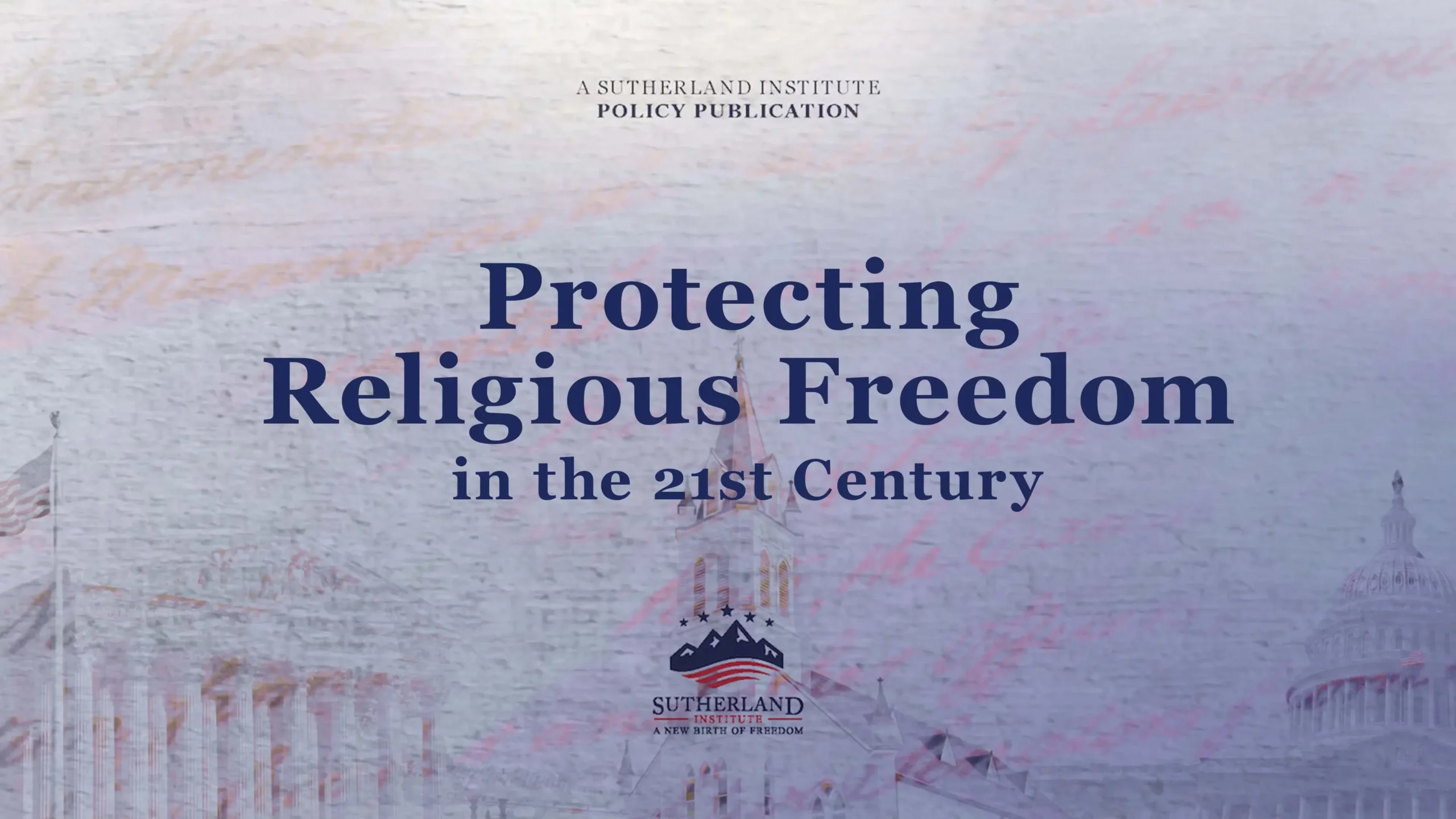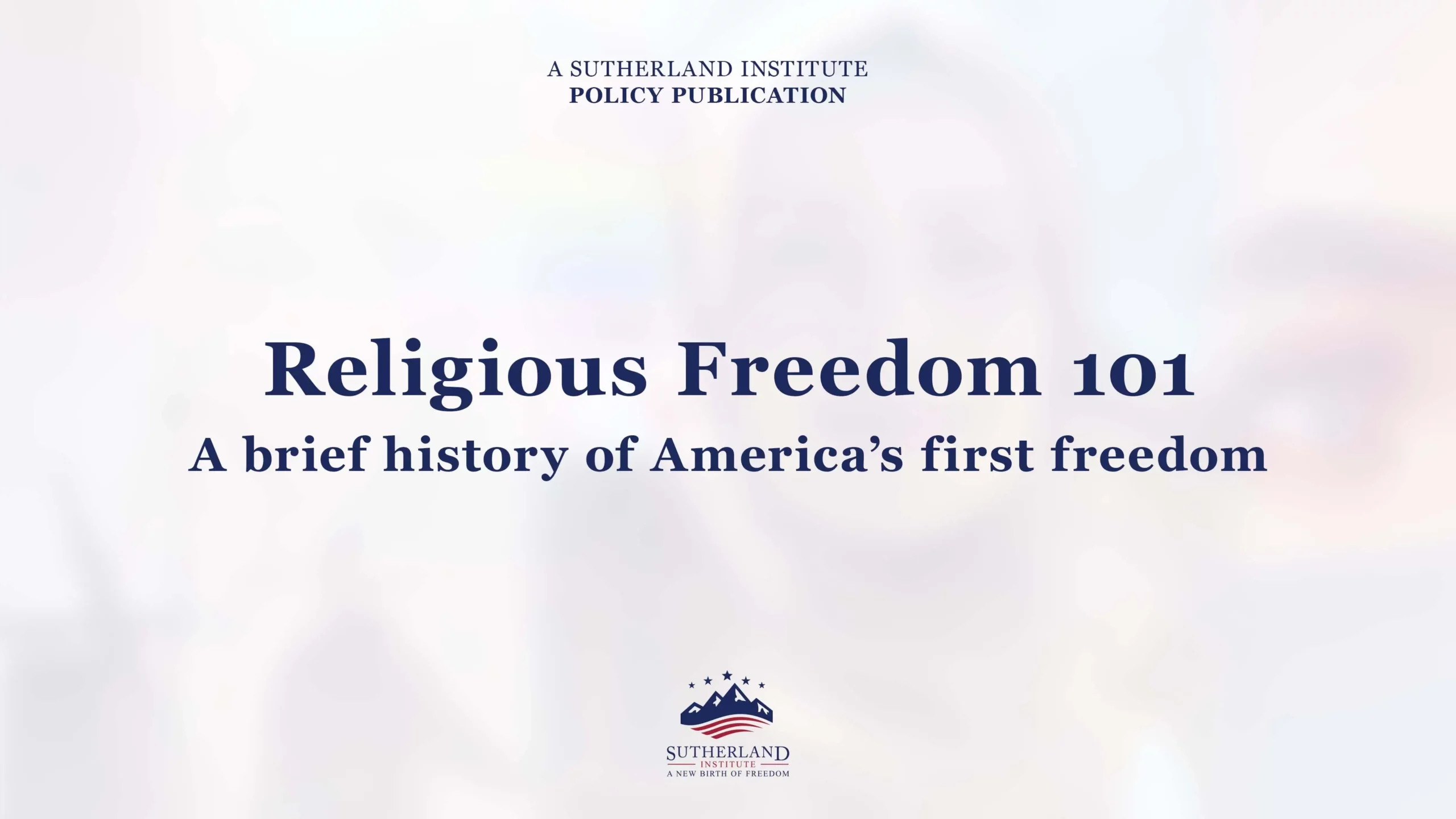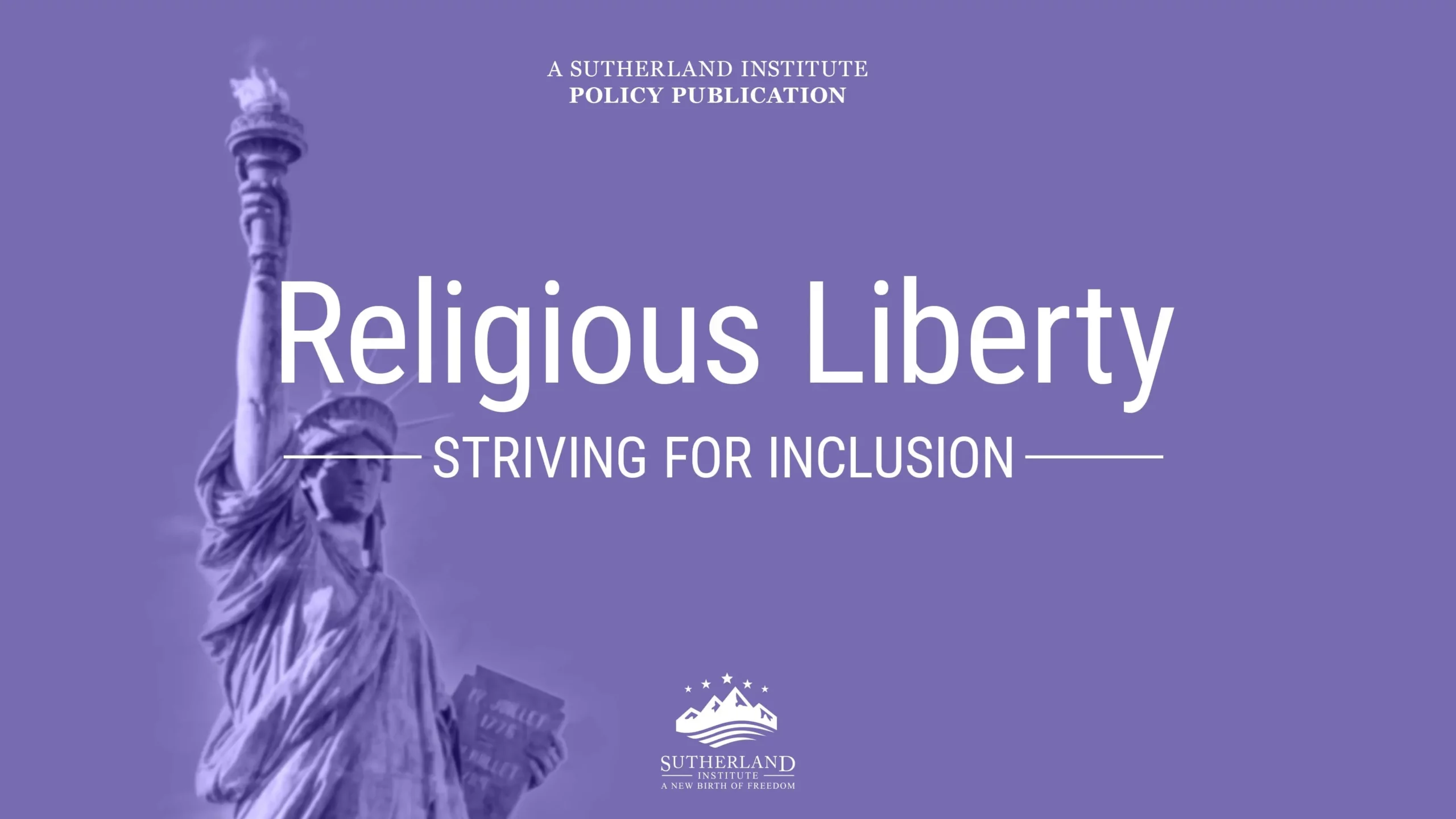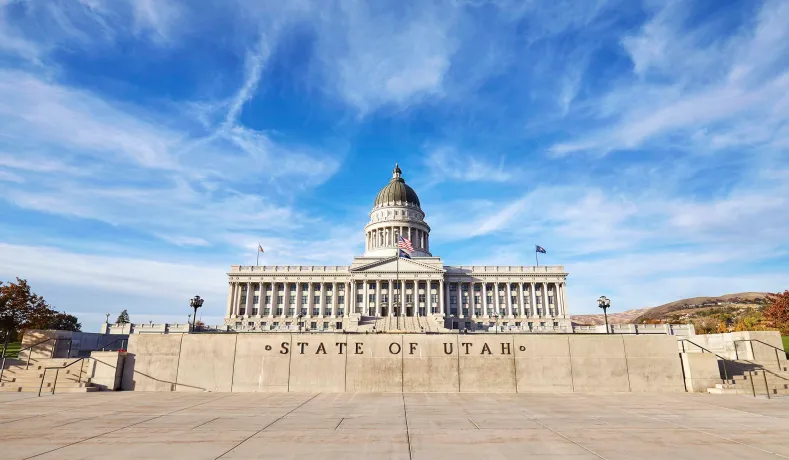Policy
Religious Freedom
Respecting human dignity requires that we respect the core elements of how people and groups identify themselves, including their religious beliefs. Religious belief has been a powerful motivation for protecting the rights and liberties of others; it kindled movements to abolish slavery and protect Americans’ civil rights. For millions of Americans, religion is the source of the values required in a free society, such as understanding, respect and sacrifice for others. Additionally, religious institutions provide irreplaceable care for the most vulnerable people in society.
For all of these reasons, the right to exercise religion is a fundamental human right. The law should respect the independence of religious institutions, defend the right of conscience, and protect the right of individuals to act on their religious beliefs, while establishing reasonable protections for public health and safety in a spirit of fairness for all.
Religious Freedom
Respecting human dignity requires that we respect the core elements of how people and groups identify themselves, including their religious beliefs. Religious belief has been a powerful motivation for protecting the rights and liberties of others; it kindled movements to abolish slavery and protect Americans’ civil rights. For millions of Americans, religion is the source of the values required in a free society, such as understanding, respect and sacrifice for others. Additionally, religious institutions provide irreplaceable care for the most vulnerable people in society.
For all of these reasons, the right to exercise religion is a fundamental human right. The law should respect the independence of religious institutions, defend the right of conscience, and protect the right of individuals to act on their religious beliefs, while establishing reasonable protections for public health and safety in a spirit of fairness for all.
Published Research
Conversations
Mahmoud v. Taylor – Part 3: What Should Happen
Mahmoud v. Taylor – Part 2: The Arguments
Mahmoud v. Taylor – Part 1: Case Overview
Proactively protecting religious freedom #utpol #religiousfreedom
Religion as a force for good
America's example of religious freedom #utpol #religiousfreedom
A special look at the new film "Free Exercise: America's Story of Religious Liberty"
Utah leading on religious freedom
Mahmoud v. Taylor – Part 3: What Should Happen
Mahmoud v. Taylor – Part 2: The Arguments
Insights & Takeaways
Curated Insights: Sutherland launches new weekly policy newsletters
Sutherland unveiled weekly policy-specific newsletters to help enhance its reach, impact, and influence on key issues facing Utah and the nation.
Parents and religious freedom
Mahmoud v. Taylor is one of the most significant cases of the U.S. Supreme Court's current term.
In fight between Maryland school district and parental rights, U.S. Supreme Court should protect religious freedom
The court should now clarify that depriving parents of a widely recognized right is the type of burden the Constitution is intended to prevent.
New research shows why religiously motivated colleges and universities offer far-reaching benefits
Religious schools created much of the infrastructure for education historically and continue to educate many students.
Legislative wrap-up: Five key victories for Utahns
Sutherland worked closely with Utah policymakers to protect and strengthen the important pillars of faith, family and freedom.
The hidden directives that issue from D.C.
The Legislature has passed a bill requiring Utah agencies to publish guidance they receive from federal agencies. A new Sutherland/Y2 survey suggests strong support for this approach.
Curated Insights: Sutherland launches new weekly policy newsletters
Sutherland unveiled weekly policy-specific newsletters to help enhance its reach, impact, and influence on key issues facing Utah and the nation.
Parents and religious freedom
Mahmoud v. Taylor is one of the most significant cases of the U.S. Supreme Court's current term.
In fight between Maryland school district and parental rights, U.S. Supreme Court should protect religious freedom
The court should now clarify that depriving parents of a widely recognized right is the type of burden the Constitution is intended to prevent.














